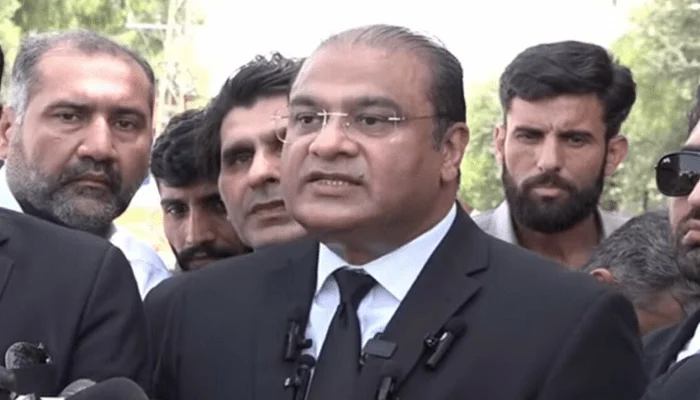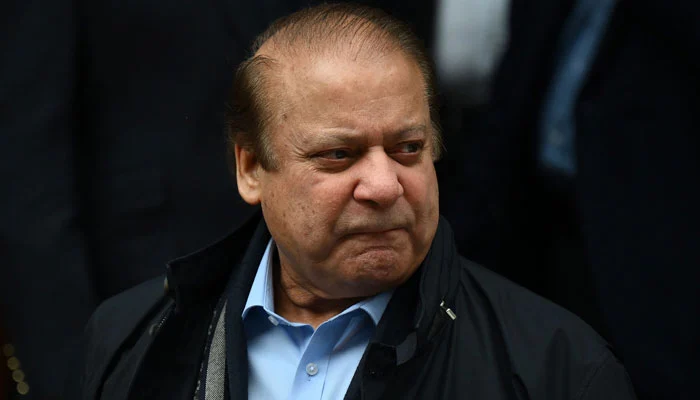The PTI exit from parliament is once again at the center of Pakistan’s political debate, as PML-N Senator Irfan Siddiqui predicted that the opposition party might withdraw from parliamentary proceedings altogether. His statement also suggested possible resignations from within the judiciary, fueling speculations about an upcoming institutional crisis.
PTI Exit from Parliament: A Looming Possibility
According to Senator Irfan Siddiqui, the PTI exit from parliament could soon become a political reality. He emphasized that parliamentary standing committees form the backbone of democratic institutions, and walking away from them weakens the system. Despite this, PTI has already withdrawn from key parliamentary committees following directives from its founder, Imran Khan.
Siddiqui’s remarks reflect growing tensions, as he hinted at mutual interests driving both political and judicial shifts. Such a scenario, he warned, could push the country into another major crisis at a time when stability is urgently needed.
PTI’s Strategy of Political Pressure
The PTI exit from parliament appears to be part of a broader strategy to increase political pressure. Last month, the party also chose to boycott by-elections in national and provincial assemblies. This step signaled PTI’s focus on challenging the system from outside traditional parliamentary frameworks rather than within.
By withdrawing from committees and electoral contests, PTI aims to intensify political uncertainty. However, critics argue that this move risks isolating the party from the democratic process and could weaken its ability to influence legislation and governance.
Division Within the Judiciary
Senator Siddiqui’s prediction did not stop with the PTI exit from parliament; he also pointed to possible judicial resignations. Recently, signs of division emerged in the Supreme Court when four senior judges refused to attend a full court meeting summoned by Chief Justice Yahya Afridi.
The dissenting judges, including Justice Mansoor Ali Shah, Justice Munib Akhtar, Justice Ayesha Malik, and Justice Athar Minallah, described the meeting as cosmetic and not legally valid.Their public letter highlighted growing fissures within the judiciary, underscoring the fragile state of institutional harmony.
قائمہ کمیٹیاں ،پارلیمنٹ کی روح ہیں۔ پی ٹی آئی اگر قومی اسمبلی اورسینیٹ میں موجود ہے تو بہتر ہوکہ وہ سٹینڈنگ کمیٹیوں میں بھی موجود رہے اور اپنا جمہوری کردار ادا کرے ۔لیکن حالات کی رفتار یہ بتا رہی ہے کہ کچھ ہی عرصے میں مایوسی کی جھنجھلاہٹ میں پی ٹی آئی، پارلیمنٹ سے اور کچھ جج…
— Senator Irfan Siddiqui (@IrfanUHSiddiqui) September 19, 2025
Implications of PTI Exit from Parliament
If the PTI exit from parliament materializes, Pakistan could face serious consequences:
- Democratic Weakening: The absence of the largest opposition party from committees and proceedings would undermine the accountability function of parliament.
- Increased Polarization: The withdrawal would deepen divisions between the government and opposition, limiting opportunities for constructive dialogue.
- Institutional Instability: Coupled with possible judicial resignations, the political system could face a multi-front crisis.
These developments could erode public confidence in democratic institutions, further complicating governance at a time when Pakistan is already grappling with economic and security challenges.
Recent Parliamentary Trends
According to recent reports, PTI lawmakers have shown consistent disengagement from parliamentary processes since 2022, when mass resignations from the National Assembly were first tendered after Imran Khan’s removal from office. Although some resignations were later withdrawn, the pattern of selective participation has continued.
Political analysts note that the PTI exit from parliament would not be unprecedented. Pakistan’s political history is marked by boycotts and walkouts, often used as tools to mount pressure on ruling parties. However, in the current scenario, where both parliament and judiciary face questions of legitimacy, the risks of destabilization are significantly higher.
Senator Siddiqui’s Warning
Senator Irfan Siddiqui’s remarks serve as a stark warning. He stated that such moves could result in “another major failure and another major humiliation” for Pakistan. While his comments directly targeted PTI, they also hinted at wider dangers if judicial divisions intensify alongside parliamentary disengagement.
His call to PTI was clear: remain within parliamentary frameworks, engage in standing committees, and fulfill the opposition’s democratic role. Ignoring this path, he argued, would not only harm PTI but also damage Pakistan’s democratic fabric.
The possibility of a PTI exit from parliament raises pressing questions about the future of Pakistan’s political system. Combined with visible cracks in the judiciary, the situation points toward heightened instability if corrective measures are not taken.
For Pakistan to move forward, both government and opposition must recognize the importance of institutional continuity. Dialogue, parliamentary participation, and judicial integrity are essential to prevent the kind of crisis that Senator Irfan Siddiqui has cautioned against.
The coming weeks will reveal whether PTI chooses to fully disengage or whether political actors prioritize stability over confrontation. In either case, the stakes for Pakistan’s democracy could not be higher.



